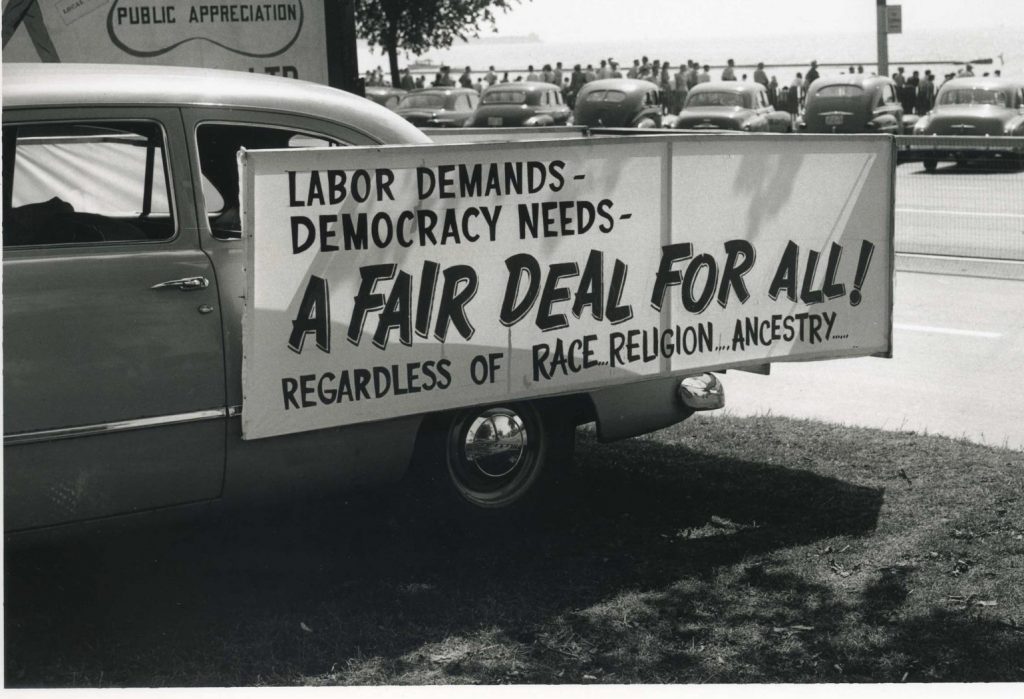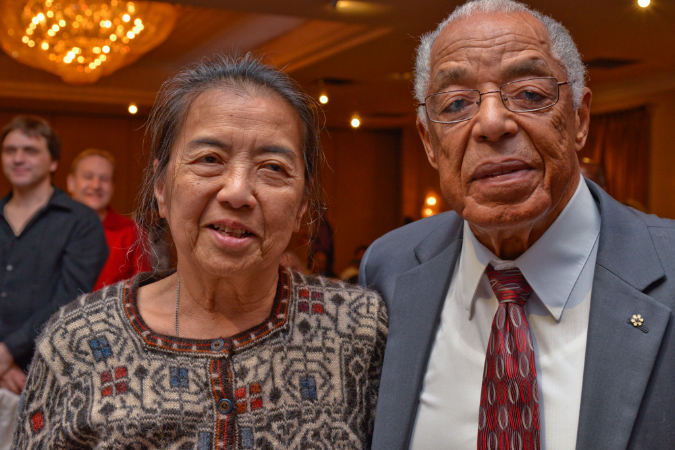The end of the Second World War saw a massive mobilization by workers across the globe to secure dignity, decent wages and labour rights. The lessons of the fight against fascism were deeply felt, and many unions took on the fight against racism and anti-Semitism. In 1947 the Toronto Joint Labour Committee to Combat Racial Intolerance was formed. Kalman Kaplansky spearheaded the initiative with strong support from the Steelworkers, Autoworkers, and Packinghouse Workers. Bromley Armstrong of UAW Local 439 and Stanley Grizzle of the Sleeping Car Porters were Black leaders in the Committee as it led a relentless campaign against racist practices by employers, landlords and businesses
The re-named Toronto Joint Labour Committee for Human Rights (TJLCHR) developed anti-racism material and presentations for union events and the annual Labour Day parade. It carried out a series of test cases, visiting hotels, restaurants and clubs to challenge discriminatory practices. Its work with community activists helped win the Ontario Fair Employment Practices Act in 1951 – some of the earliest human rights legislation in North America.

In 1954 a delegation of 35 leaders from Toronto’s Black community, including Armstrong and Grizzle, travelled to Ottawa to demand reform of Canada’s racist immigration laws. Donna Hill, secretary of the Committee (mother of author Lawrence Hill and singer Dan Hill) prepared the brief for the delegation.
That same year, TJLCHR lent its support to Black residents of Dresden Ontario. Discrimination was rampant in the town, with restaurants and hair salons refusing to serve Black customers. Numerous complaints were filed, and Bromley Armstrong and Ruth Lor went to Dresden Ontario to run a test case under the new Fair Accommodations Act. The McKay’s Cafe case garnered widespread media attention and ended up in the courts. McKay was fined, and eventually obeyed the law. These stories are captured in the Labour Council videos “Welcome to Dresden” and “Welcome to Canada”.
The TJLCHR campaigned against discrimination for many years. This legacy is honoured through the Labour Council’s annual Bromley Armstrong Award, given to union activists who have been leaders in equity, inclusion and human rights work.
